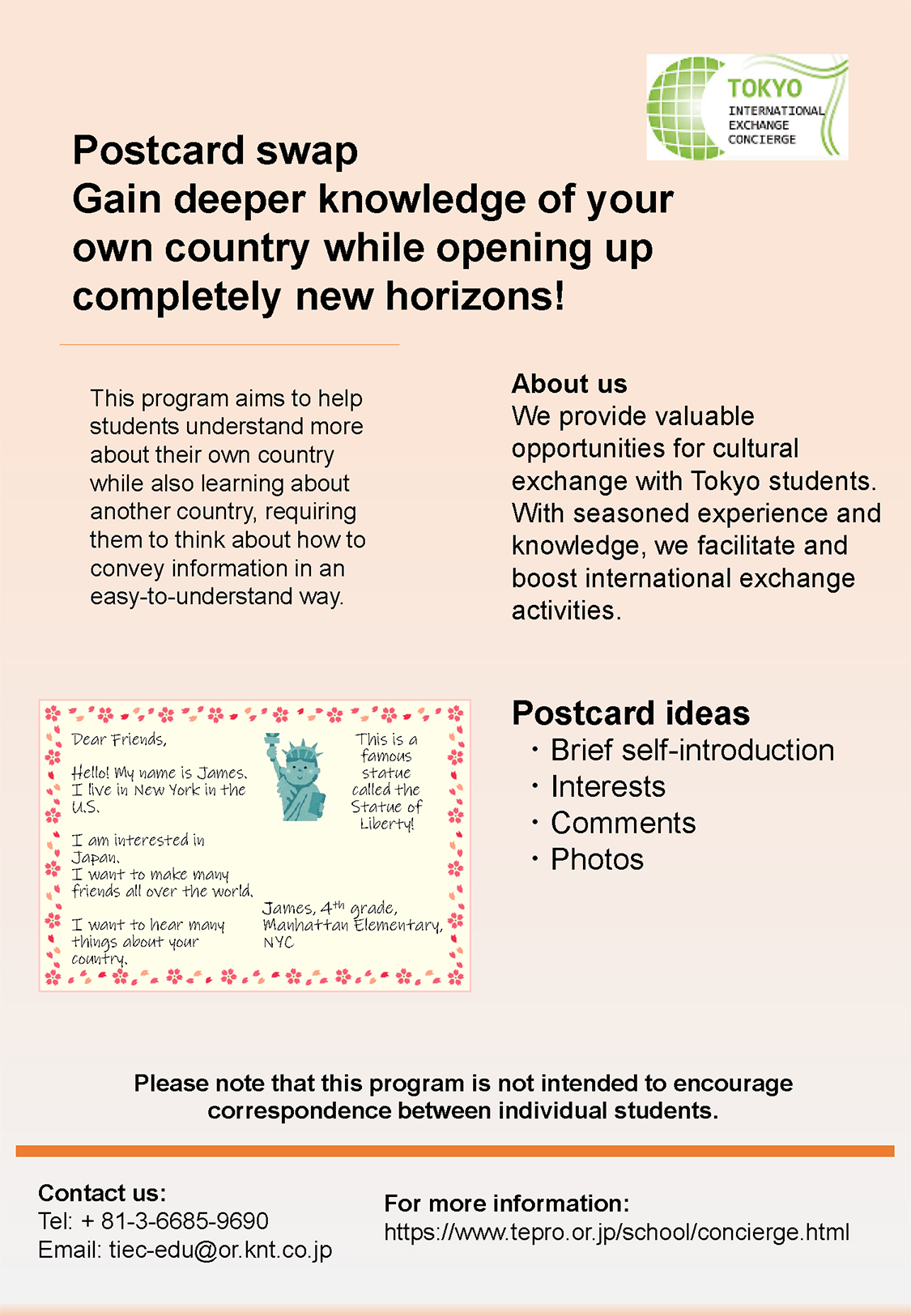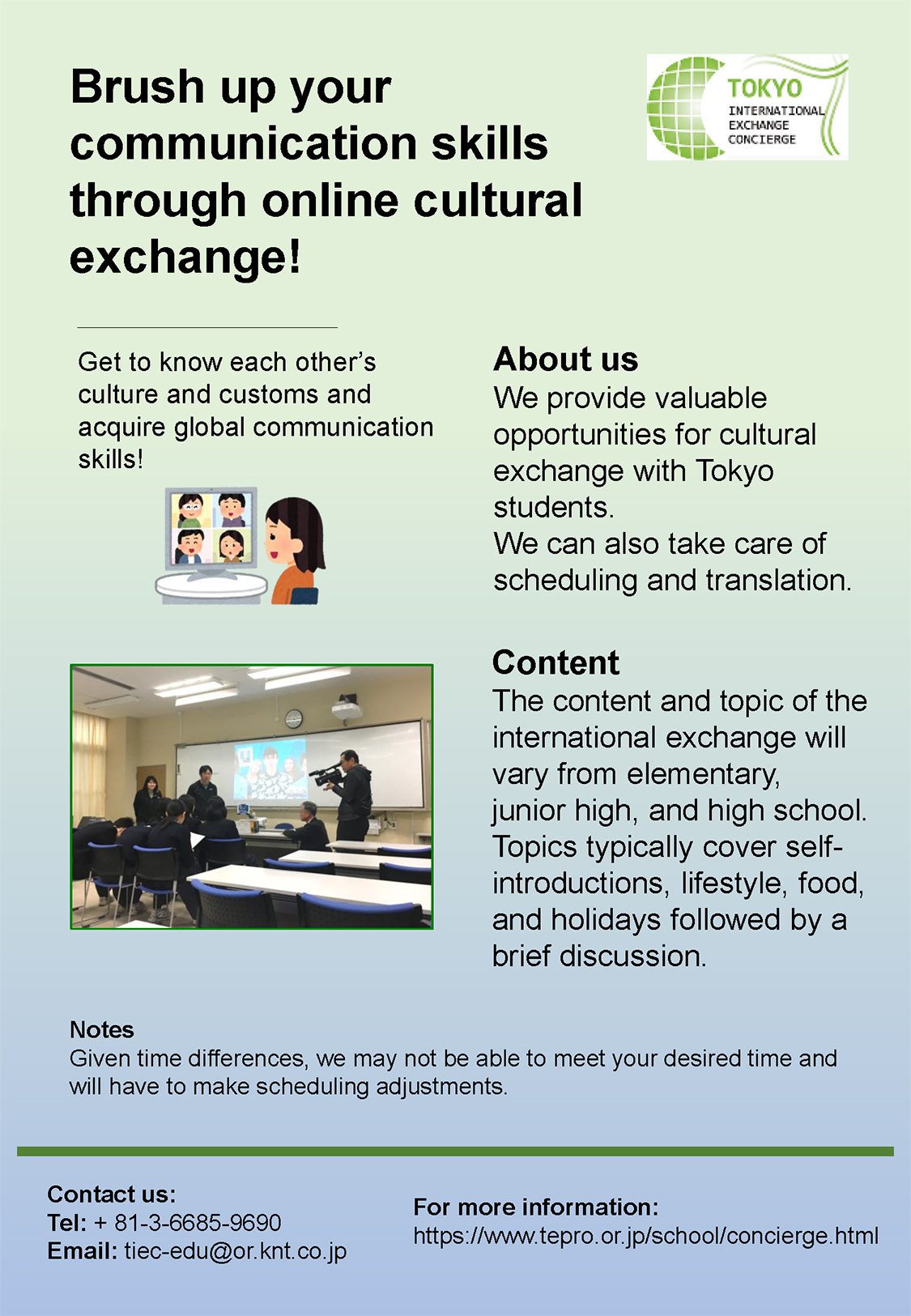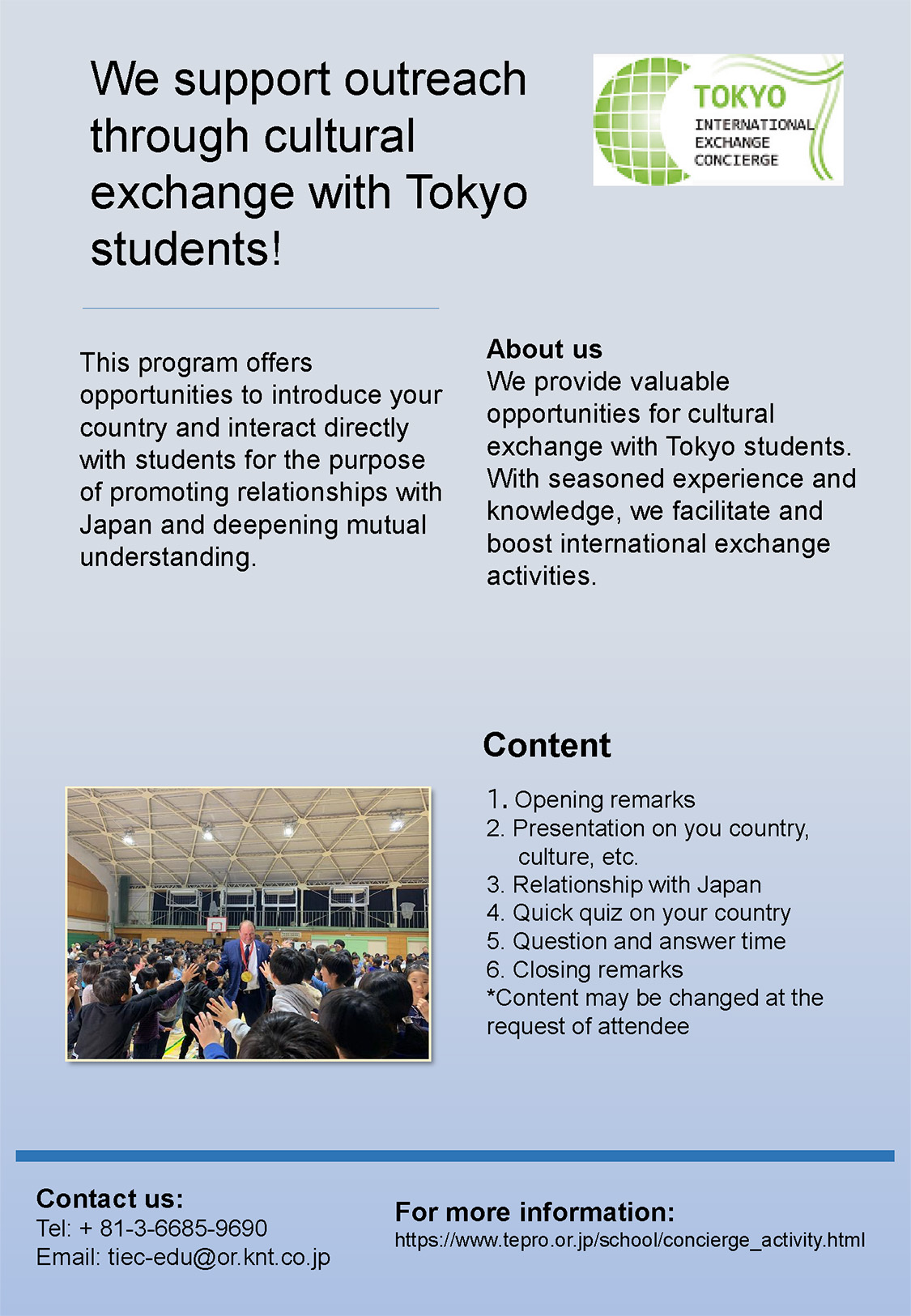Main exchange activities
Main exchange activities
Through the Tokyo International Exchange Concierge, the following cultural exchange activities can be performed. In addition to these activities, it is possible to engage in other activities, such as entering a sister school agreement or hosting visits from overseas schools.
For more details, please refer to the Examples of International Exchange Activities section.
(1)Letter, postcard, and email exchange
This is an activity in which Tokyo students exchange letters, postcards, and emails with a common theme or reflections on the season with students overseas. This not only gives participants the opportunity to increase their awareness and knowledge of foreign countries and cultures, but also encourages them to learn more about themselves, their own family, school, culture and customs, as well the issues affecting their own country. By creating these letters and postcards, we expect that each participant will be able to demonstrate originality and creativity, and this will also enhance their ability to express themselves and create content in other languages. Participants also will have the opportunity to exchange videos using online learning tools.

(2)Online cultural exchange
This is an activity in which participants can interact in real time while seeing each other on a monitor. During this activity, participants can become more familiar with people around the world as they see the reactions of the foreign students or hear their voices. Participants can deepen their understanding of each other's cultures, customs, and thinking styles and enhance their ability to communicate in foreign languages through self-introductions in a foreign language and presentations on a common theme.

(3)Cultural exchanges with foreign embassies and other organizations in Tokyo
This is an activity in which participants can learn about foreign culture and history, and also gain an understanding of diversity and cultural differences through programs provided by embassies and other organizations. Such programs send lecturers to schools, allow students to visit embassies and other organizations, and provide teaching materials. Learning about the roles of the embassies and other organizations will help students understand the importance of embassies in connecting Japan with other countries and lead to fostering a rich international mindset. In addition to lectures, participants also may be able to experience unique exchanges, such as cooking or traditional song and dance performances.




